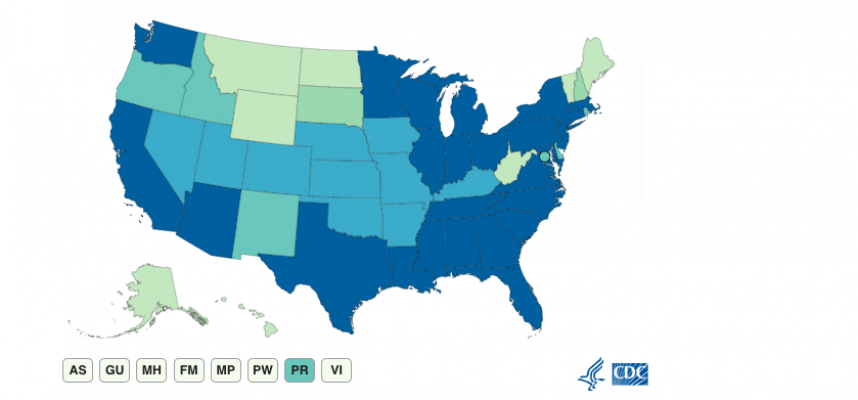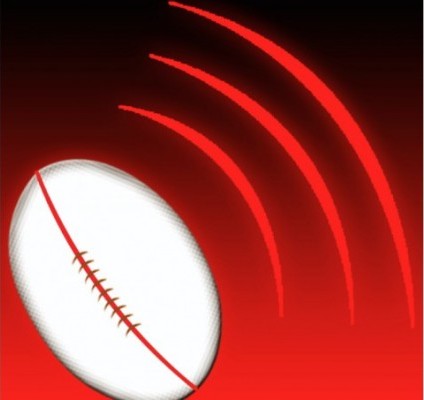More Straight Talk On COVID, Statistics, And Return To Play
More Straight Talk On COVID, Statistics, And Return To Play

Return to play for rugby is highly unlikely this fall, but there may be pockets where schools and colleges are in session and sports might be possible.
There are, according to the CDC, currently 3,555,877 cases of COVID-19 recorded, with 72,045 new cases reported yesterday. A total of 137,864 people have died (a fatality rate of 3.88%), with 926 deaths reported yesterday.
While there have been some reports of bad data—misreported deaths or case numbers (like in San Antonio where "probably cases" we mixed in with confirmed cases), overall, it's unlikely the CDC statistics are greatly affected by this errors. We can use the CDC to judge where COVID-19 is hitting hardest.
(These regions either were in the top 6 of cases, or top 6 in deaths, or both). We use CDC's "confirmed" numbers when they are available, not "probable" numbers:
Upstate New York (CDC specifically separates New York City from the rest of the state): 184,408 cases, 8,762 deaths (4.8% fatality rate)
New York City: 217,562 / 18,758 (8.6%)
Florida: 311,640 / 4,677 (1.5%)
California: 356,178 / 7,345 (2.1%)
Texas: 292,656 / 3,561 (1.2%)
New Jersey: 176,501 / 15,665 (8.9%)
Pennsylvania: 99,478 / 6,992 (3.96%)
Illinois: 157,950 / 7,452 (4.7%)
Massachusetts: 106,271 / 8,163 (7.7%)
These are either large-population states, or states with dense populations. Clearly the Northeast remains problematic and that region is where college sports conferences have been most aggressive in shutting down competition for the fall.
So let's have a look at the least-his states:
Montana, Wyoming, North Dakota, Maine, Vermont, Alaska, Hawaii, and West Virginia all report the least number of cases because, of course, they are sparsely populated, often rural states.
Of those states, all but Maine are also listed in the category of having the lowest level of fatalities.
In addition, states that have a low level of fatalities in relation to their population include Oregon, Idaho, Utah, Kansas, Oklahoma, Arkansas, and Tennessee.
Just a little worse than Tennessee is Texas, but Texas has been seeing a lot of new cases and more hospitalizations lately, and so has moved to shut things down more.
More About COVID-19 And Kids
The studies show kids don't seem to get COVID-19 easily, don't spread it easily, and when they get it, it's not as serious. But that's not the entire story. Yes, it's true that people older than 75 are much more likely than younger people to die from this disease (CDC numbers show that as of July 15, 72,191 people over 75 have died, while deaths for 14 years old or younger are 31, and deaths 15-24 years old are 157—all totals for the USA as a whole).
Also according to the CDC, those over 65 are more than three times as likely to be hospitalized with COVID-19 than those under 50. The hospitalization rate for those 5-17 is 97% less than the hospitalization rate for people 65 and older.
(See source materials from the CDC here: https://gis.cdc.gov/grasp/COVIDNet/COVID19_3.html )
But people are still worried about kids getting it, and kids going to school or college and getting COVID-19, not noticing, and spreading it to more vulnerable populations.
What This Means For Playing Sports
Forget about your league or your conference. If you do get to play rugby, it will be through informal 7s tournaments, or within your state. It is going to be enormously difficult to figure out which states have opened sports and which have not. So it's going to be much more likely that we'll see the University of Wisconson-Madison play University of Wisconsin-Platteville than we will see the Badgers play University of Illinois. There's a decent chance we'll see the likes of Wheeling University and WVU playing, but more likely that they play each other than go anywhere else.
What we will need to see in the rugby world, and soon, is some announcements from conferences that they will halt conference play, or move it to the spring, or something like that. We might need to see announcements of some conferences or divisions joining forces to get teams games. And, of course, in college rugby, with USA Rugby conferences and NCR conferences not even answering to the same overlords, that whole insurance/cross-membership thing needs to be dealt with.
And One More Thing
If teams institute mandatory testing, expect cases to rise. We know that young people, especially, can have COVID-19 and not feel sick. Just as we are seeing in professional ranks and in some major college sports teams, we will see a lot of positive tests, but many of those will be asymptomatic. The question is whether gathering on a team makes the spread worse.












